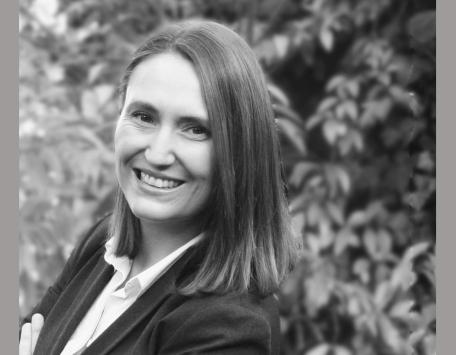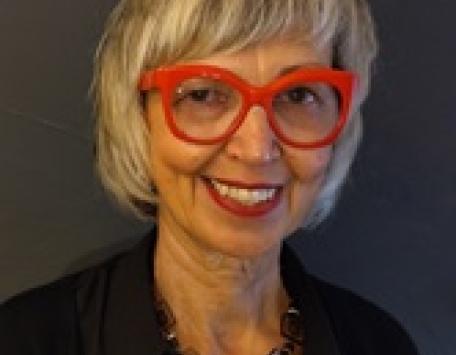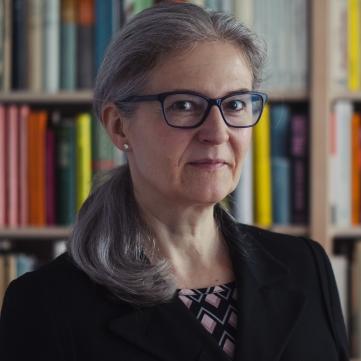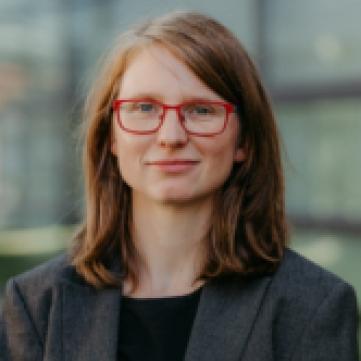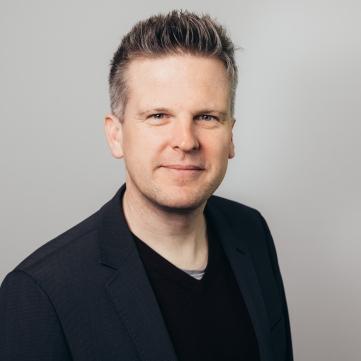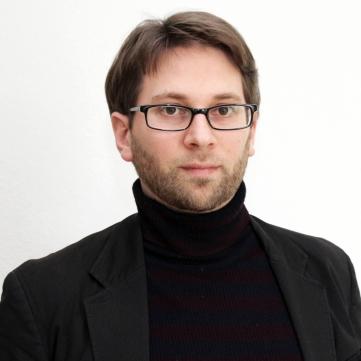BA Educational Science: Inclusion and Diversity
The course opens up the opportunity to work in new fields of work, which have emerged primarily as a result of the all-day school model and the reorganization of lower secondary level. In addition, the area of extracurricular child and youth work and the broad field of vocational rehabilitation and support for disadvantaged people are of considerable importance (cf. the Federal Government's vocational training reports).
The tasks in these fields of work include Organization of preventive measures, case management, strengthening individual resources, drawing up individual support plans, clarifying legal issues, diagnosing and assessing performance, teaching and advising, quality assurance. After completing their studies, graduates work in the education sector, preferably in schools and education-related social institutions. They should help to reduce disadvantages and encourage and support targeted support processes.

Information for prospective students
The course opens up the opportunity to work in new fields of work, which have emerged primarily as a result of the all-day school model and the reorganization of lower secondary level. In addition, the area of extracurricular child and youth work and the broad field of vocational rehabilitation and support for disadvantaged people are of considerable importance (cf. the Federal Government's vocational training reports).
The tasks in these fields of work include Organization of preventive measures, case management, strengthening individual resources, drawing up individual support plans, clarifying legal issues, diagnosing and assessing performance, teaching and advising, quality assurance. After completing their studies, graduates work in the education sector, preferably in schools and education-related social institutions. They should help to reduce disadvantages and encourage and support targeted support processes. The skills required for this work relate primarily to the following activities:
- ADVISING AND SUPPORTING children/young people and their families (e.g. resource development, coaching/future planning)
- ADVISING AND SUPPORTING teachers (e.g. social diagnosis and assessment of performance, support plans)
- ADVICE AND INNOVATION Focus on school management (e.g. case management; legal issues)
- COOPERATION WITH SOCIAL INSTITUTIONS (e.g. support for support processes in leisure time, therapeutic assistance, career guidance, etc.)
- PROFESSIONAL NETWORKING (e.g. prevention, educational policy interventions, management models)
The degree program concludes with the degree "Bachelor of Arts" in accordance with the common structural guidelines of the federal states of 10.10.2003. In terms of content, this is a university degree course that requires a special professionalization perspective due to the problems of development and inclusion. This is also reflected in the structure of the course:
- Firstly, all of the course content is geared towards issues of inclusion. In this respect, social participation can be understood as the central epistemological pattern of the course.
- Secondly, students work in an institution over a period of three semesters and provide support in the care of children and young people, adults or senior citizens.
- Thirdly, an undergraduate module serves as a subject-related qualification. Finally, the success of the course and the work in the institutions does not result exclusively from the so-called specialist knowledge and skills. Rather, a specific combination of developed social and personal skills is also required.
The range of competencies or professional qualification always refers to different levels of a professional profile and comprises personal, social and professional competence as a unit. The subject-specific and interdisciplinary qualification objectives of the degree program have proven to be meaningful, which is reflected, among other things, in
- the successful transfer of graduates to Master's degree programs,
- the entry into employment in various pedagogical fields of work and
- the creation of new positions for graduates in the practice institutions
The degree program has three characteristic features:
- A reflexive theory-practice coupling is based on an interlocking of scientifically generated knowledge and experiential knowledge and aims to coordinate segregated areas of education and practice (more on this here).
- Reflective transdisciplinarity aims to fulfill the epistemological implications of inclusion practice by dovetailing school pedagogical, socio-pedagogical and psychological findings and subject orientations.
- The educational policy requirements and foundations aim to make the structural causes of educational disadvantage the subject of knowledge. The degree program is embedded in the research and development context in two ways.
On the one hand, the study of educational science with a focus on inclusion and diversity is characterized by "research-based learning". In this way, the introduction to the practice of "pedagogical intervention" can be optimally combined with the development of knowledge-guiding research questions. On the other hand, the degree program is closely linked to the transdisciplinary, profile-forming research focus currently being developed at Schools II, which takes a multi-perspective look at questions of inclusion by incorporating the disciplines and research approaches represented in the Schools. In particular, it deals with questions of the socialization of the subject under the sign of individualized and pluralized life situations - in line with the overall university guiding principle of "Shaping a Humane Future".
After completing their studies, graduates work in the education sector, in schools and (education-related) social institutions. As part of their subsequent activities, they help to reduce disadvantages and encourage and support specific support processes.

Career prospects lie primarily in social function and activity contexts. As a first professional qualification, the Bachelor of Arts in Educational Science: Inclusion and Diversity (professional title: educator) qualifies students to work in the following fields, among others:
- Work in primary, secondary and comprehensive schools, grammar schools and vocational colleges or vocational schools
- Learning and educational counseling
- Company training and further education
- Youth work
- Educational assistance
- Work with migrants
- School social work
- Special fields of social work, especially in non-clinical care and elderly care
- Organizational development
- Parent and family education
- Disability support
- Scientific research contexts
Admission requirements are:
- (a) General higher education entrance qualification (according to § 66 para. 2 sentence 1 HFG/NRW), subject-restricted higher education entrance qualification or on the basis of further vocational training or subject-related training and professional activity (§§ 2 and 3 Vocational Training University Admission Ordinance NRW) or
- (b) Trial studies for those otherwise qualified in vocational training (Section 4 (2) of the NRW Vocational Training University Admission Ordinance). In a trial course, students are required to complete 40 credit points within the first 2 semesters or
- (c) Proof of a general education in educational science/social science corresponding to the requirements of the university and a subject-related aptitude for the course of study
aptitude (according to § 66 para. 6 HFG).
Further information on admission to the degree program without a general or subject-specific higher education entrance qualification can be obtained from the Central Student Advisory Service.
You can register for a study place in Educational Science: Inclusion and Diversity from 29.07.2024 (online) via the Registrar's Office (deadline 30.08.2024).
Further information on the current application procedure at the University of Siegen can be found here
and further information from the Central Student Advisory Service can be found here.
Under certain conditions, you can also study at the University of Siegen without a general higher education entrance qualification (according to § 66 para. 2 sentence 1 HFG/NRW) - please note the information under "Admission requirements".
Information for students
Introductory events are held for all first-year students before the start of lectures - the so-called ESE = Welcome Week. In addition to providing an opportunity to welcome students and get to know each other, the ESE events are primarily intended to provide basic orientation and information. From mid-September, information on the Welcome Week in the winter semester 2025/26 will be published here for first-semester students.
Student ESE
Students from the higher semesters provide an introduction to university life from a student perspective. They give a tour of the campus, provide information on timetabling, explain the study regulations and shed some light on the jungle of abbreviations. In addition, an interesting evening program is offered as part of the student ESE, which is intended to help first-year students feel at home in Siegen as quickly as possible.
The student ESE takes place in the week from 06.10.2025 to 10.10.25.
The following is planned for students in the Bachelor of Education:
Monday (06.10.) 10-15: Welcome by the student council in the blue lecture hall (AR - D 5102). The room will also be signposted on this day.
Tuesday (07.10.) 10 a.m.-1 p.m.: Student ESE with Lina Schütz (timetabling, basic university knowledge, etc.) ROOM TO BE ANNOUNCED.
Wednesday (08.10.) 10 am - 3 pm further organization and introduction, 3:30 pm creative afternoon, 8 pm freshman party at Meyer
Thursday (09.10.) Thursday fun and pizza (games, chatting, snacks, drinks, pizza order)
Friday (10.10.) Everything that has not been done.
You should bring this with you: Laptop, unisono access data, matriculation number, G-number (apply in advance via unisono)
The lecture period in the winter semester 2025/26 begins on October 13, 2025 and ends on February 6, 2026.
You can obtain information about the courses on offer via the University of Siegen'scampus management system unisono.
Registration of study and examination achievements WiSe 25/26
Students of the Bachelor's degree program in Education: Development and Inclusion must register online in unisono (not by e-mail) for all ungraded and graded coursework between 16.12.2024 and 16.01.2025! Coursework not registered by the deadline may not be completed. If you have any difficulties with online registration, please contact the Examinations Office. They will be happy to help you.
Bachelor thesis
The application for admission to the Bachelor's thesis must be submitted in writing to the Examination Board. Admission to the Bachelor's thesis is governed by § 13 RPO-B. In addition, at least 140 credit points must have been earned as part of the degree program.
The candidate must apply in writing to the Examination Office for admission to the Bachelor's examination.
For organizational reasons, the processing period for the Bachelor's thesis can begin at the earliest 7-8 weeks after registration. Please send the completed and signed form - preferably by e-mail - to the Examinations Office. Admission to the Bachelor's thesis will be announced 1-2 weeks before the start of the processing period by written notification or electronically via unisono.
Registration deadlines
Latest registration date Issue of the topic/ start of processing
20.12. 15.02.
15.02. 01.04.
31.03. 15.05.
15.05. 15.07.
30.06. 15.08.
15.08. 01.10.
30.09. 15.11.
If the candidate withdraws from the examination before the topic of the Bachelor's thesis has been issued, registration for the examination is deemed not to have taken place.
The candidate must register for the Bachelor's examination in writing at the Examination Office.
For organizational reasons, the processing period for the Bachelor's thesis can begin at the earliest 7-8 weeks after registration. Please send the completed and signed form - preferably by e-mail - to the Examinations Office. Admission to the Bachelor's thesis will be announced 1-2 weeks before the start of the processing period by written notification or electronically via unisono.
Registration deadlines
Latest registration date Issue of the topic/ start of processing
20.12. 15.02.
15.02. 01.04.
31.03. 15.05.
15.05. 15.07.
30.06. 15.08.
15.08. 01.10.
30.09. 15.11.
If the candidate withdraws from the examination before the topic of the Bachelor's thesis is issued, registration for the examination is deemed not to have taken place.
The candidate has the right to propose an assessor. After hearing the nominee, the Chair of the Examination Board appoints the first assessor, the second assessor and the topic of the Bachelor's thesis.
All teaching staff who teach on the degree program have the basic opportunity to supervise the thesis. This applies in particular to those teaching staff with whom the candidate has already attended courses. The following list provides an overview (as of April 2023). It should be emphasized that this overview only serves as an aid and it is advisable to contact and enquire with the relevant teachers specifically:
The following conditions must be met for teachers to be allowed to supervise or assess theses
First reviewer:
- Professor
- junior professor
- Research assistants (with a doctorate) - with corresponding examination authorization
- Research assistants (not holding a doctorate) - with corresponding examination authorization
Second reviewer
- Professor
- Junior professor
- Research assistants (with a doctorate)
- Research assistants (not holding a doctorate) - with corresponding examination authorization
Important: It is necessary that at least one reviewer is a professor. The examination board can issue an examination authorization for academic staff to write a review upon request.
The processing time is 9 weeks, for empirical work 11 weeks. The assignment is made by the examination board after hearing the reviewer.
Extension of the processing time: If the candidate falls ill, the deadline for submitting the Bachelor's thesis can be extended by a maximum of half the processing time stipulated in the FPO-B (31.5 days / 38.5 days). Proof of illness must be provided in the form of a medical certificate. The examination board decides on exceptions.
The Bachelor's thesis is assessed and graded by the supervising assessor and the second assessor. The reviews must be returned to the Chair of the Examination Board with a grade no later than eight weeks after receipt of the thesis.
The Bachelor's thesis must be graded with at least 4.0 by both reviewers. The grade of the Bachelor's thesis is calculated from the arithmetic mean of the individual assessments.
If one of the two different assessments is worse than "sufficient" or if the two assessments are more than two full marks apart, the Examination Board will appoint a third assessor.
The Bachelor's thesis should not exceed 50 pages.
The Bachelor's thesis must contain a signed declaration of plagiarism stating that the thesis was written independently, that no sources and aids other than those specified were used and that citations were identified.
The Bachelor's thesis must be submitted in two bound copies and as a PDF file to the Examination Office for Pedagogy: Development and Inclusion of Schools II. The submission date must be recorded. If the thesis is not submitted on time, it is considered "insufficient" (5.0).
Examination Office: Petra Wengler
Contact
Phone: (+49) 271 740 3448
Opening hours
14:00-15:00 Wednesday 08:30-12:30 Thursday 08:30-12:30 Friday 08:30-12:30
Postal address
Adolf-Reichwein-Str. 2a
57068 Siegen
Room: AR-K 107
Secretariat
Consultation hours also possible by appointment
